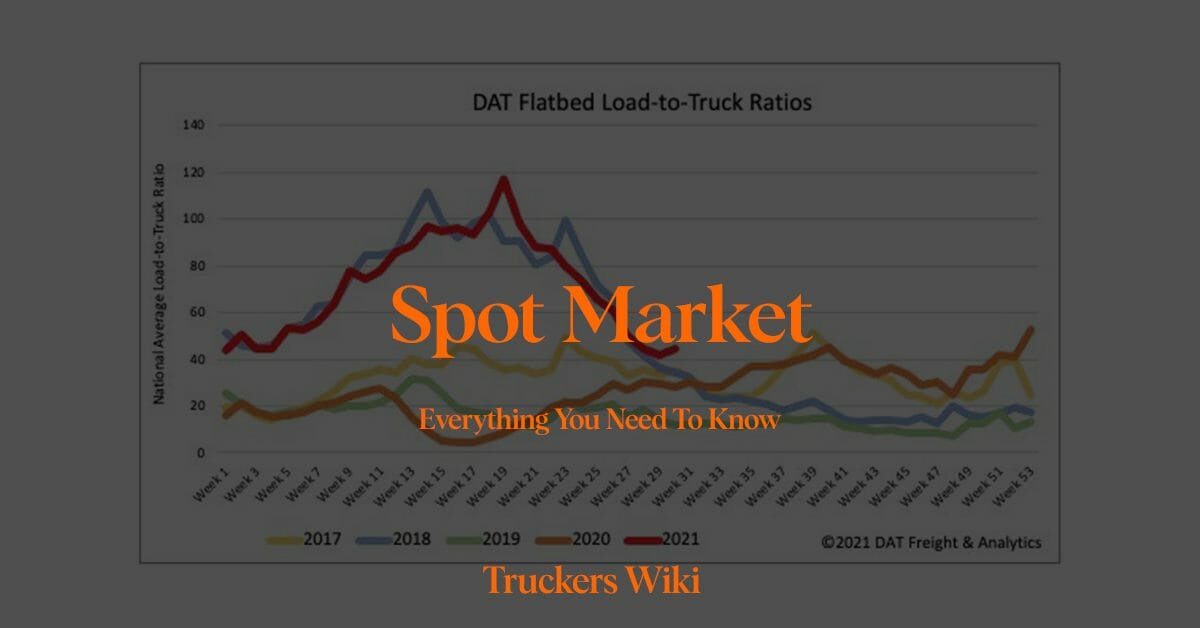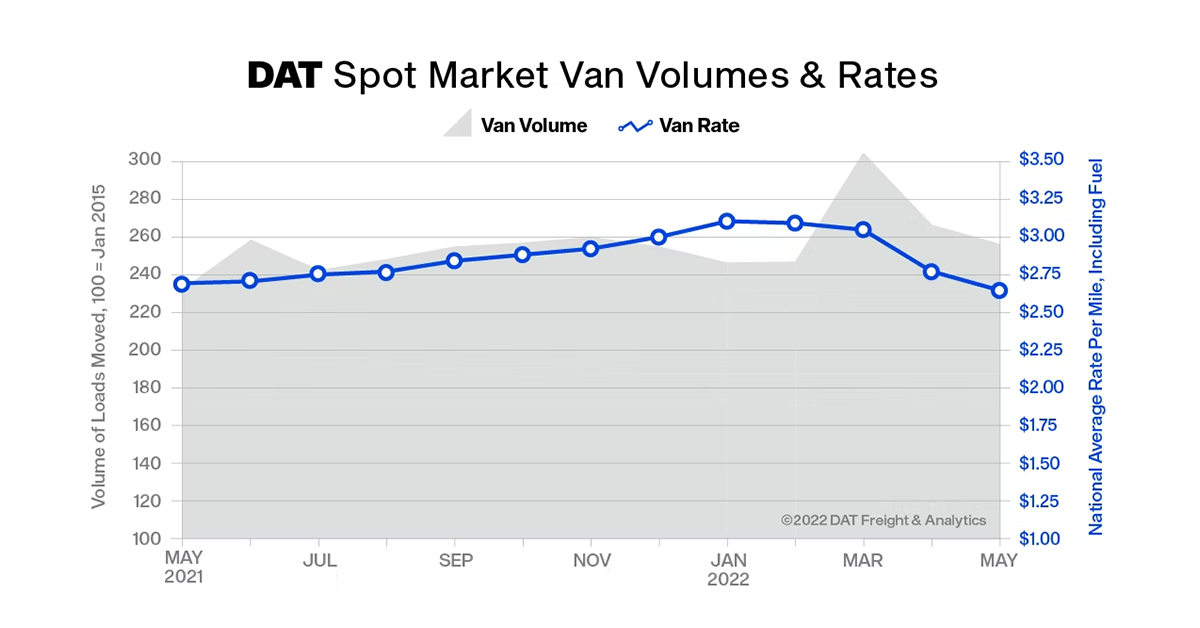
Table of Contents
What is Spot Market in Trucking
Spot Market refers to a segment of the freight transportation market where freight brokers and shippers arrange the transportation of goods on a short-term, ad-hoc basis.
This is in contrast to long-term dedicated contract carriage or so-called dedicated trucking, agreements that are common in the industry.
Characteristics of Spot Market
The spot market in the trucking industry is a dynamic and responsive marketplace. It provides a solution for shippers facing immediate shipping needs and carriers looking to optimize their operations and revenue.
The ability to quickly adapt to changing market conditions is key.
Short-Term Contracts
Spot market transactions are typically short-term in nature, often covering a single load or a few loads over a short period.
Shippers turn to the spot market when they have shipments that fall outside their regular contracted agreements, such as unexpected surges in demand or one-time special deliveries.
Carriers choose spot market loads based on their current availability and business objectives.
Dynamic Pricing
Spot market rates are not fixed, they are subject to market dynamics. When demand for trucks (capacity) exceeds the available supply, spot rates tend to rise. Conversely, when there are more available trucks than loads, rates may decrease.
Various factors influence rate fluctuations, including the time of year (seasonal demand), economic conditions, fuel prices, and even factors like natural disasters that can disrupt supply chains.
Freight Brokers
Freight brokers are intermediaries who play a major role in the spot market. They connect shippers with carriers by matching available loads with available trucks.
Brokers have a deep understanding of market conditions and negotiate rates and terms on behalf of both shippers and carriers.
Their expertise helps streamline the logistics process so that freight is transported efficiently.
Flexibility
The spot market provides flexibility for both carriers and shippers. Carriers can choose which loads to accept based on current rates and their operational capacity.
Shippers can tap into the spot market when they need additional capacity or face unexpected transportation challenges.
Market Volatility
Spot market rates can experience significant volatility. For example, during the holiday season, there is often a surge in demand for trucking services, which can lead to higher rates.
Economic conditions, such as recessions or economic booms, can also impact spot market rates. High fuel prices or extreme weather events can disrupt supply chains, affecting pricing.
Competition
The spot market is competitive. Many carriers are actively seeking available loads to maximize their revenue and optimize their routes.
This competition can benefit shippers as they negotiate with carriers and brokers to secure favorable rates.
Payment Terms
In the spot market, payment terms are typically quicker compared to long-term contracts. Carriers often receive payment within a few weeks after completing a shipment.
This quick turnaround in payment can be advantageous for carriers, especially owner-operators and smaller trucking companies.
Learn more about Load in general here.
You can always check the current Spot Market stats here.


